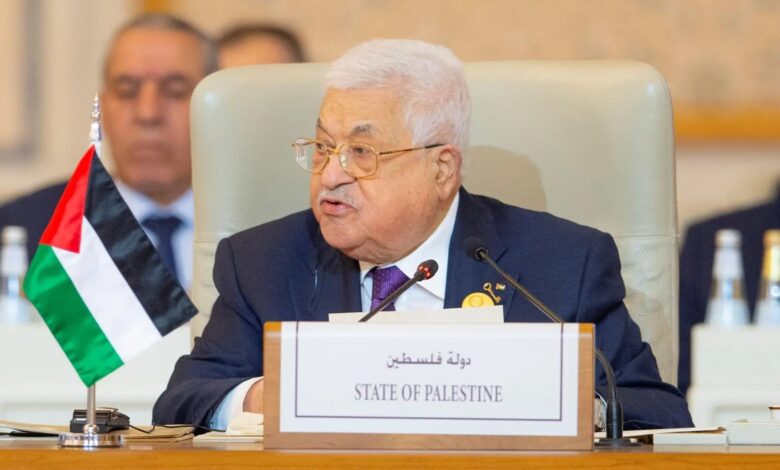Palestinians don’t want to govern Gaza: here’s why

Gaza “must include Palestinian-led governance” and be “unified with the West Bank under the Palestinian Authority,” according to Secretary of State Antony Blinken.
The only problem is that the Palestinians have made it clear that they refuse to govern Gaza after the war.
Palestinian President Mahmoud Abbas told Blinken that the Palestinian Authority would govern Gaza only as part of a comprehensive agreement that includes the Palestinian Authority governing the entire West Bank and East Jerusalem: either the Palestinian Authority keeps all of the 1967 territory, or let Israel figure out how to run Gaza. .
Abbas visited Jenin in the West Bank in July, the first time since 2012.
His senior officials were expelled and he was not welcome.
However, Abbas believes he can govern the entire territory of 1967 when he can barely impose his control outside of Ramallah.
Muhammad Dahlan, the former viceroy of the Palestinian Authority in Gaza whom Hamas ousted in its 2007 coup, also saying He would not accept an offer to govern the strip after Hamas because there is not a single person who can fix things for the Palestinians, who need an overhaul of their politics and system.
The Popular Front for the Liberation of Palestine, a member of the Palestine Liberation Organization, warned Palestinians not to even think about the idea of Gaza after Hamas: The only conceivable outcome is that “resistance overcomes aggression. By defeating the invaders, the Palestinians will dispel the illusions of creating a new reality” in post-war Gaza after the war.
As Palestinians, and many Arabs, blurred the line between Gazans and Hamas, discussing Gaza’s future became tantamount to treason.
These Palestinians and Arabs seem to think that their antagonism toward Israel reinforces their governing legitimacy and, as such, have chosen politicking over policymaking.
Fortunately, the United Arab Emirates has moved in the opposite direction.
Abu Dhabi unveiled a plan on Tuesday to build a field hospital in Gaza.
At first glance, the plan seems like an exclusively humanitarian effort, but if we look deeper, we cannot help but notice that the measure is loaded with political messages: the United Arab Emirates, the only Arab government to denounce the Hamas attack of 7 October, is building a hospital in Gaza without permission or coordination with Hamas, which until October 7 had been the de facto government in the strip.
If the UAE can build and run a hospital in Gaza without consulting Hamas now, it will certainly be able to build and run other public facilities when the war ends and Hamas is gone.
UAE Foreign Minister Abdullah bin Zayed spoke by phone on Wednesday with the Palestinian Authority’s second-in-command, Hussein al-Sheikh.
According to a readout Sheikh published in X, the two officials discussed “coordination with brothers and friends for the establishment of an international bloc that supports an immediate ceasefire.”
The bloc will almost certainly fail to stop Israel before it takes down Hamas.
But the bloc will probably be there when the war ends and can then “jointly” oversee the post-Hamas government of Gaza.
But not everything is decided yet. Spoilers still abound.
Qatar, Hamas’s main sponsor, is trying to turn back the clock to October 6.
Qatar realized on October 7 the severity of the Hamas massacre of 1,400 Israeli non-combatants.
Thus, Doha went into damage control, emphasizing to Hamas head Ismail Haniyeh the need to pretend that his organization had accepted the two-state solution.
Haniyeh later said in a speech that Hamas agreed to recognize a Palestinian state in the 1967 territory.
But that would be only half of the Arab Peace Initiative. The other half is for the Arabs to recognize Israel and live in peace with it.
Haniyeh could not pronounce the words “Israel” or “peace.”
Second, Qatar accepted the offer of the other Hamas leader, Khaled Meshaal, that his organization was willing to release all non-military hostages but needed Israel to stop the war long enough for Hamas to round up the hostages and the would release.
Meshaal said the remaining 200 Israeli “military hostages” would only be freed in exchange for Israel releasing all Palestinians in its prisons.
Qatar knows that once Israel involves Hamas in the release of any number of hostages, the Jewish state could be forced to continue talking to free the rest.
And as long as Israel needs to talk to Hamas, indirectly through Qatar, Hamas will remain valuable. Destroying it will have to wait.
The Palestinians and the Gaza Strip are at a crossroads.
Either Israel manages to destroy Hamas, giving the UAE and the Palestinians the opportunity for a new beginning (rebuilding Gaza and with it a new, competent government) or Qatar manages to delay, obstruct and keep Hamas relevant until the Israeli push weakens and world forces Israel must stop.
In this way, Hamas would survive and plans for a better post-war Gaza would be shelved, probably forever.
Hussain Abdul-Hussain is a researcher at the Foundation for the Defense of Democracies.
Twitter: @hahussain




